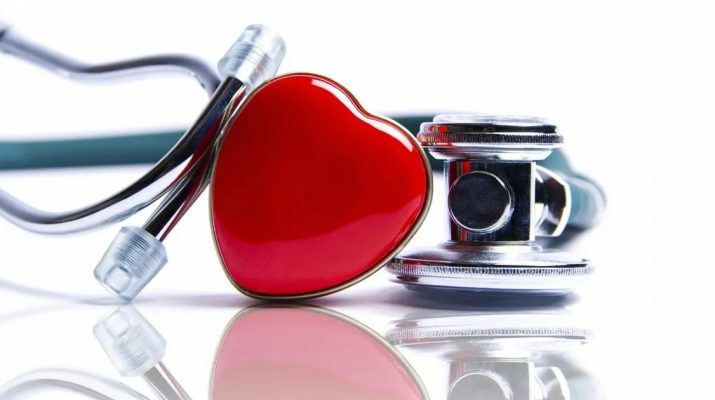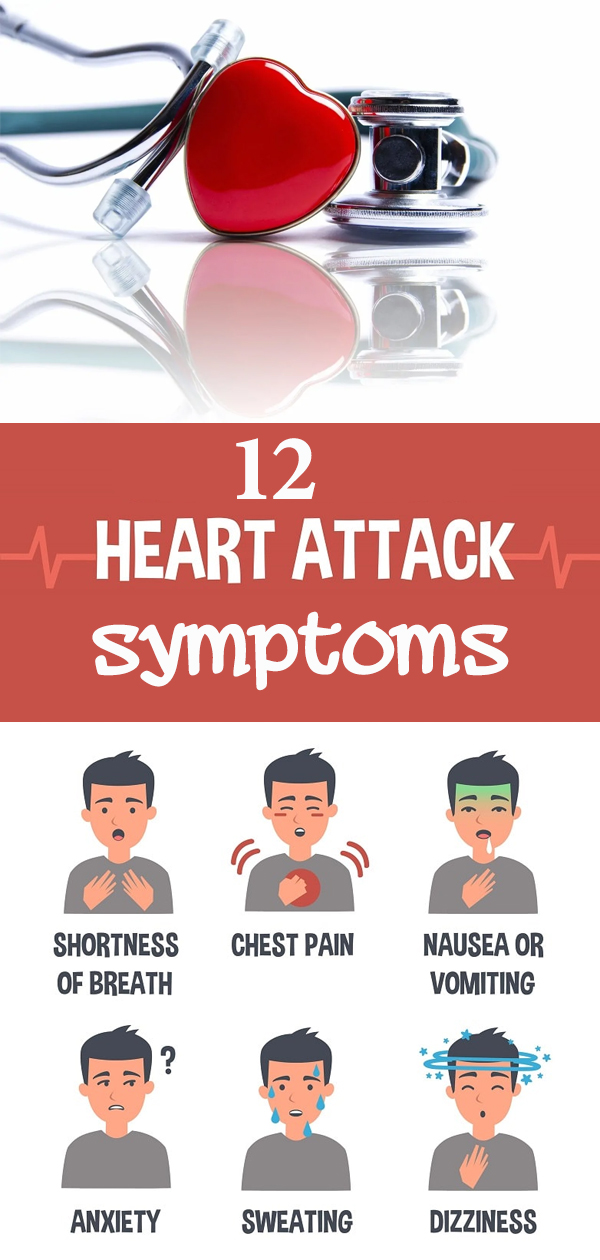Did you know that one of the leaders in global fatalities is heart attack? Studies have proven that approximately half a million people in the US alone are hit by myocardial infarction every year, and from this number, only about 300,000 recover from it.
Myocardial infarction (MI) is another name for heart attack. A myocardial infarction happens when blood flow to the heart suddenly stops. Without the blood flowing in, the heart can’t access oxygen. If not treated immediately, the heart muscle begins to die slowly.
According to the Society of Cardiovascular Patient Care, early heart attack symptoms occur in 50 percent of all people who have a myocardial infarction, but if you do get immediate treatment, you may be able to prevent or limit damage to your heart muscles.
Heart attacks are thought only to affect people of older ages, as seen in most current cases. Medical studies have proven differently by stating unequivocally that heart attacks have no age discrimination. However, most of the factors that could determine whether or not one would experience a myocardial infarction are mainly common among the aged.
Heart attacks can and should be prevented and their fatal outcomes controlled in some ways. Knowing and understanding the symptoms of myocardial infarction could go a long way in saving a person’s life – and who knows – maybe yours.
Most Common Heart Attack Symptoms
1. Lifestyle
Living an unhealthy lifestyle and gaining more weight is a proven reason for heart attacks to occur. You wouldn’t avoid exercise and eat food with a lot of calories and expect to escape a myocardial infarction. Your way of living is a direct translation of your body’s health. It is important to note that this is a sure sign that you will become sick.
Lifestyle is linked as one major cause of heart attacks, especially in women.
2. Chest Discomfort
Chest discomfort is often felt in the center or left side of the chest. It usually lasts for a short period of time. It is recurrent; it occurs, disappears and may or may not return. Chest discomfort can feel like pressure, squeezing, fullness, or pain. Chest discomfort can also feel like passing heartburn or indigestion.
Chest pains may be described to the doctor explicitly and in different ways.
3. Fatigue
When fatigue is experienced for no apparent reason, or when the normal, usual day to day activities make you unreasonably tired, you should be concerned. Stress on the heart may be reflected as heart attack symptoms in other body parts since their energy is not being replenished.
These mirrored symptoms usually seem to have no conclusive reason. The fatigue might also be a symptom of a silent myocardial infarction.
4. Shortness Of Breath
Sometimes this might be the only symptom of an impending myocardial infarction. It may happen before or during recurring chest discomforts. Shortened breaths usually happens when you are resting or doing usual physical activities.
Just like fatigue, the increased stress on the heart causes a shortage and leads to seemingly unrelated symptoms, like shortness of breath.
When the heart is unable to supply the body with the blood it needs to function normally, it follows that the cells of the body are also not receiving sufficient oxygen, causing them to fail or die.
5. Discomfort In The Upper Body
Pain is felt on one or both arms, the back, shoulders, neck, jaw, or upper section of the stomach.
6. Nausea, Vomiting Or Indigestion
Myocardial infarction may be mistaken for indigestion, and similarly, indigestion may be diagnosed as myocardial infarction. This is where family records come into play.
Studying your family history may go a long way in finding out whether or not the symptom is a heart attack in waiting. While our diet may always be blamed, it is important to note that it is not suspect for nausea, vomiting or indigestion symptoms.
Most of us have a good record of the foods which cause indigestion, nausea, and vomiting, and we take great consideration when eating, be it at home or in a typical restaurant.
Nausea, vomiting or indigestion are all warning signs that should be taken seriously.
7. A Rapid, Irregular Heartbeat
When the heart functioning is limited, its natural design tries to make up for the deficit by increasing its work rate. The increased work rate appears as a rapid heartbeat, with a massive deviation from the usual charts.
Although it is commonly known that heartbeats are bound to increase in rate when the body increases energy requirements during physical activities, once the operation ends and one is relaxed, the heartbeat returns to a reasonably steady rate.
When your heart rate doesn’t return to normal when at rest, it can be a sign your heart may not be functioning correctly, and you should seek help immediately.
8. Sweating
At times, one may break out into a cold sweat. This is not the normal body sweat that occurs during hot days and exercise or body exertion periods. You might even be sweating during winter. Sweating could also be accompanied by some of the myocardial infarction symptoms.
9. Lightheadedness Or Fainting
Lightheadedness is a feeling that occurs due to lack of proper oxygen supply to the brain. For people with a history of fainting, this might be normal, but a red flag should be raised once this occurs for a person with no apparent medical history to faint.
10. Severe Anxiety And Sleep Disturbances
One of the things that is affected when one is sick is sleep. Restlessness might be a symptom of many-body disorders, but not ruling out heart attacks, especially silent ones, is critical.
11. A Cough That Won’T Quit
A cough that won’t quit in many cases does not necessarily spell trouble. This is primarily for people who don’t have heart complications. On the other hand, if an individual has heart complications, they should seek medical attention immediately. This cough could be accompanied by a white or pink mucus indicating warning signs of heart failure. One should visit a doctor and inquire what’s causing the cough.
12. Cold And Clammy Skin, Gray Pallor
Cold skin is a more severe visual appearance of illness. If your family has a history of experiencing heart attacks, then your chances of encountering one are increased compared to that of a person whose family has no record of heart attacks.
This does not mean that you will eventually get one, but is a good enough reason for you to go for regular medical check-ups; as they say – prevention is better than cure.
All these are but a few symptoms of impending heart attacks. It is essential to note, however, that the symptoms may vary from one person to another.
Having a symptom from this list wouldn’t necessarily mean that you are about to experience a myocardial infarction, and at the same time, the symptoms may also be a sign of another illness.
Heart Attack Recovery Tips
No matter how fatal heart attacks may be, it is important to note that a good population of people recover from them. The American Heart Association states that most people who experience heart attacks eventually recover from them.
A full recovery is defined as a return to normal activities. This will depend on how active you were before the myocardial infarction, the severity of the offense, and your body’s response/adaptation to it.
Some Of The Ways To Recover Are:
1. DIET CHANGE
Diet has been linked to more than half of known heart diseases. Well, as the saying goes, take care of your body, and it will take care of you. Changing bad eating habits could go a long way in aiding in recovery. Eating healthy foods and avoiding fatty foods is a good start in myocardial infarction recovery.
Here are good ideas for impressive diet inclusions that are known to take care of the heart. Vitamin D is primarily known to prevent most heart diseases.
2. Exercising Regularly
Exercising regularly is an excellent way to improve blood circulation and also help you get rid of excess body fats that would otherwise end up constricting blood vessels and cause a repeat myocardial infarction.
Exercising regularly is also a known way of getting back into shape, especially after myocardial infarction. Researchers have also actually proven that not exercising could be worse than smoking.
3. Regular Health Check-Ups
Regular health check-ups are important to be ready and also to prevent another myocardial infarction occurrence; it is wise to visit a physician for regular health check-ups. Doctors run diagnostics to understand if any of the symptoms you experienced is a myocardial infarction, and this is necessary for real planning to avoid future occurrences.
4. Cardiac Rehabilitation (Cr)
Cardiac rehabilitation helps with optimizing physical function in patients with cardiac disease or recent cardiac surgeries.
CR services can be provided during hospitalization for the event or in an outpatient setting. This is a good thing since everything you need to get and stay healthy is in one convenient location.
5. Pace Yourself
Healing takes time. Do not be in a hurry to get yourself fully functioning after the myocardial infarction. Take essential steps to resume normal activities and do not be disappointed when the body fails you. Do not sink into depression and start seeing yourself as weak or frail.
Final Thoughts On Heart Attack Symptoms And Recovery Tips
Many heart attacks can be prevented and cured with proper health methods. Here’s a good site with more than enough useful resources for a healthy life.
Doctors and therapists overwhelmingly encourage people to get help if they suspect they’re experiencing early myocardial infarction symptoms. Even if you’re wrong, going through diagnosis is better than suffering long-term heart damage or other heart attack related health issues because you waited.
Prevention is always and will always be better than cure.
Heart attack symptoms and recovery methods vary from person to person and even from one heart attack to another. The important thing is to believe in yourself. Trust your instincts. You know your body much better than anyone. If something feels wrong, get emergency care right away.
Better safe than sorry.
As much as it is ‘one hell of an experience’ going through a heart attack, scientists have proven time and again that most heart attack cases are recoverable. Fatalities could have been prevented had the affected persons known mentioned symptoms and recovery tips.
Well, with all this knowledge on heart attack symptoms and recovery tips, we believe that heart attacks are more recognizable and recovery is just but a glimpse away.


